Wendy Bryn Harmer (b. ca. 1980) is a dramatic soprano, best known for her roles in Richard Wagner's Der Ring des Nibelungen .
Wendy Bryn Harmer (b. ca. 1980) is a dramatic soprano, best known for her roles in Richard Wagner's Der Ring des Nibelungen .
Born in Roseville, California, Harmer was raised in Bountiful, Utah, where she sang in the Salt Lake Children's Choir until the age of 17, and also played the flute. After high school, she attended the Boston Conservatory and studied with Sheri Greenawald and attended master classes with soprano Christine Brewer, whose recommendation enabled her to receive a scholarship. She attended the 2002 and 2003 summer programs of the Music Academy of the West in Montecito, whose founder, Marilyn Horne, "took me under her wing." [1]
In 2003, she joined the Gerdine Young Artists’ program at the Opera Theatre of Saint Louis. In 2004 she participated in a nine-artist master class at the Villecroze Music Academy on the French Côte d’Azur, here first feeling a special attraction to the work of Wagner. This led to her participation in the San Francisco Opera’s Merola summer program in 2004 and then the Metropolitan Opera's Lindemann Young Artist's Program, the start of her long association with the Met. [1]
At the Met, Harmer has appeared in Le nozze di Figaro , War and Peace, Khovanshchina , Parsifal , Das Rheingold , Die Walküre , Die ägyptische Helena , and Jenufa ; and in the Met's high-definition video recordings of the Ring Cycle and The Magic Flute . Her engagements with other companies have included several roles in the Seattle Opera’s Ring Cycle, her debut at Houston Grand Opera as Rosalinde in Die Fledermaus , Eglantine in Euryanthe at the Bard Music Festival, Die Walküre at the San Francisco Opera, Glauce in Medea at the Glimmerglass Festival, Wanda in La Grande-Duchesse de Gérolstein and Vitellia in La Clemenza di Tito at Opera Boston, Adalgisa in Norma at the Palm Beach Opera, and Mimi in La Bohéme at the Utah Opera Festival. [2]
In the Ring Cycle, Harmer's frequent roles are Freia in Das Rheingold, Ortlinde in Die Walküre, and Third Norn or Gutrune in Götterdämmerung .
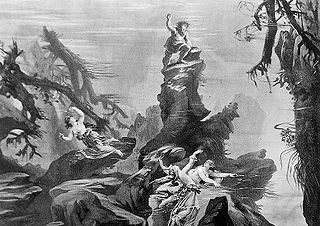
Der Ring des Nibelungen, WWV 86, is a cycle of four German-language epic music dramas composed by Richard Wagner. The works are based loosely on characters from Germanic heroic legend, namely Norse legendary sagas and the Nibelungenlied. The composer termed the cycle a "Bühnenfestspiel", structured in three days preceded by a Vorabend. It is often referred to as the Ring cycle, Wagner's Ring, or simply The Ring.
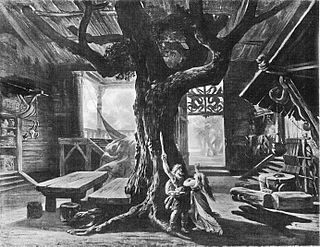
Die Walküre, WWV 86B, is the second of the four epic music dramas that constitute Richard Wagner's Der Ring des Nibelungen. It was performed, as a single opera, at the National Theatre Munich on 26 June 1870, and received its first performance as part of the Ring cycle at the Bayreuth Festspielhaus on 14 August 1876.

Seattle Opera is an opera company based in Seattle, Washington. It was founded in 1963 by Glynn Ross, who served as its first general director until 1983. The company's season runs from August through late May, comprising five or six operas of eight to ten performances each, often featuring double casts in major roles to allow for successive evening presentations.
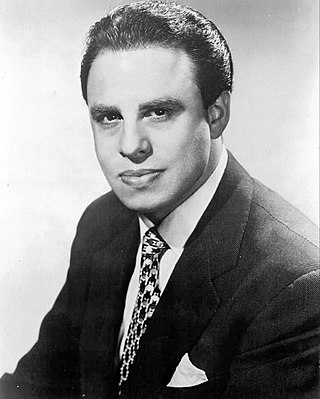
George London was an American concert and operatic bass-baritone.

Dame Gwyneth Jones is a Welsh dramatic soprano, widely regarded as one of the greatest Wagnerian sopranos in the second half of the 20th century.

Blanche Thebom was an American operatic mezzo-soprano, voice teacher, and opera director. She was part of the first wave of American opera singers that had highly successful international careers. In her own country she had a long association with the Metropolitan Opera in New York City which lasted 22 years. Opera News stated, "An ambitious beauty with a velvety, even-grained dramatic mezzo, Thebom was a natural for opera: she commanded the stage with the elegantly disciplined hauteur of an old-school diva, relishing the opportunity to play femmes du monde such as Marina in Boris Godunov, Herodias and Dalila."
Hanna Schwarz is a German mezzo-soprano and contralto singer in opera and concert. In 1976 she performed the roles of Fricka and Erda in the centenary Jahrhundertring production at the Bayreuth Festival, directed by Patrice Chéreau.
Jean Madeira, née Jean Browning was an American contralto, particularly known for her work in late-romantic German repertoire such as the operas of Richard Wagner and Richard Strauss.

Karin Branzell was a Swedish operatic contralto, who had a prominent career at the Metropolitan Opera, New York, and in Europe. Her very wide range enabled her to sing both contralto roles and the occasional soprano role. She was particularly noted for her singing of the music of Richard Wagner, in roles such as Ortrud (Lohengrin), Venus (Tannhäuser), Erda, Brangäne, and Brunnhilde. She was considered on a par with Margarete Klose and Kerstin Thorborg as a Wagnerian contralto. Amneris (Aida), Dalila, Herodias (Salome), and Clytemnestra (Elektra) were among her other renowned roles.
Margaret Harshaw was an American opera singer and voice teacher who sang for 22 consecutive seasons at the Metropolitan Opera from November 1942 to March 1964. She began her career as a mezzo-soprano in the early 1930s but then began performing roles from the soprano repertoire in 1950. She sang a total of 39 roles in 25 works at the Met and was heard in 40 of the Metropolitan Opera radio broadcasts. She was also active as a guest artist with major opera houses in Europe and North and South America.
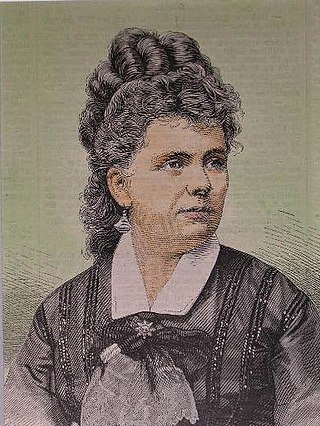
Therese (Thoma) Vogl was a German operatic soprano, the first Wellgunde in Wagner's Das Rheingold, and the first Sieglinde in his Die Walküre.
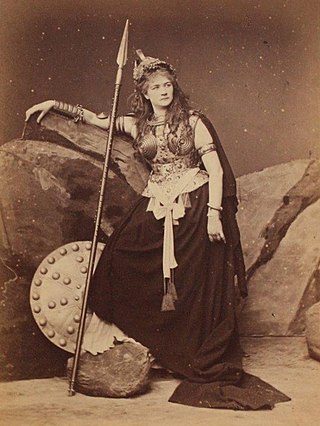
Marie Haupt was a German operatic soprano who had an active career during the latter half of the 19th century. She is best remembered today for portraying several roles in the first complete presentation of Richard Wagner's The Ring Cycle at the very first Bayreuth Festival in 1876.
Janis Martin was an American opera singer who sang leading roles first as a mezzo-soprano and later as a soprano in opera houses throughout Europe and the United States. She was particularly known for her performances in the operas of Richard Wagner and sang at the Bayreuth Festival from 1968 to 1997.

Edyth Walker was an American opera singer who had an active international career from the 1890s through the 1910s. She began her career performing roles from the mezzo-soprano repertory, but later successfully added several soprano parts to her repertoire as well. While she did perform in Italian and French language operas, she had a clear affinity for works in the German language. She particularly excelled in the operas of Richard Wagner. After retiring from the stage, she was active as a voice teacher in both France and the United States. Her voice is preserved on several gramophone recordings, made mainly for His Master's Voice, between 1902-08.
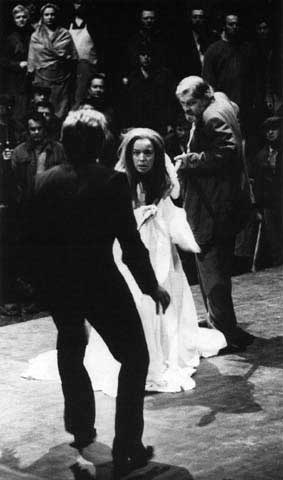
The Jahrhundertring was the production of Richard Wagner's Ring cycle, Der Ring des Nibelungen, at the Bayreuth Festival in 1976, celebrating the centenary of both the festival and the first performance of the complete cycle. The festival was directed by Wolfgang Wagner and the production was created by the French team of conductor Pierre Boulez, stage director Patrice Chéreau, stage designer Richard Peduzzi, costume designer Jacques Schmidt and lighting designer André Diot. The cycle was shown first in 1976, then in the following years until 1980. It was filmed for television in 1979 and 1980. While the first performance caused "a near-riot" for its brash modernity, the staging established a standard, termed Regietheater, for later productions.
Carmen Reppel is a German soprano active in both opera and concert. A member of the Staatstheater Hannover, she had a major international career, appearing in leading roles in over 60 operas. She also explored lesser-known repertoire such as Siegfried Wagner's Schwarzschwanenreich and appeared in contemporary operas, singing in world premieres of operas by Aribert Reimann and Flavio Testi. She is known for her parts in the Jahrhundertring, the centenary production of Wagner's Der Ring des Nibelungen at the Bayreuth Festival, including the filmed version of 1980.

Diane Curry is an American operatic mezzo-soprano who is particularly known for her performances of the works of Richard Strauss, Richard Wagner, and Giuseppe Verdi. She was notably the mezzo-soprano soloist on the 1987 recording of Verdi's Requiem by the Atlanta Symphony Orchestra & Chorus and conductor Robert Shaw which won the 1988 Grammy Award for Best Choral Performance.

Ambur Braid is a Canadian soprano.
Günther Groissböck is an Austrian operatic bass. Anthony Tommasini, chief classical music critic for The New York Times, described Groissböck's "imposing and good-looking" portrayal of Baron Ochs in Der Rosenkavalier at the Metropolitan Opera, New York, as "a revelation". James Jorden of the New York Observer praised Groissböck's "innovative take" on the role and his "big, virile sound". A 2018 recording of the Met performance was nominated for Grammy Award in the Best Opera Recording.

Tichina Vaughn is an American operatic dramatic mezzo-soprano active internationally in opera, concert halls and recitals. Starting at the Lindemann Young Artist Development Program at the Metropolitan Opera, her American career expanded into Europe, as member of the permanent ensembles of the Semperoper in Dresden and the Stuttgart Opera, where she was awarded the title of Kammersängerin in 2006. She has been a regular at the Arena di Verona and other major theaters worldwide, singing a wide repertoire span, with a "voluminous and dark mezzo" voice the dramatic Verdi roles such as Amneris in Aida, Eboli in Don Carlo, Azucena in Il trovatore and Ulrica in Un ballo in maschera, Wagner's Ortrud Lohengrin, Venus Tannhäuser, Fricka Die Walküre, Waltraute in Götterdämmerung and Strauss, Herodias in Salome and Klytemnestra in Elektra. According to Opernglas, Vaughn has a natural "great intensity" on stage, with an ample "voice, which flows richly, even in the low registers." The Neue Zürcher Zeitung describes her voice as an "enchanting satisfyingly rich mezzosoprano". Bernard Holland of The New York Times called hers "A voice of quality", which had "the presence and personality that might well fit the Met... a mezzo-soprano whose strong upper register gave hints of a dramatic soprano to come".